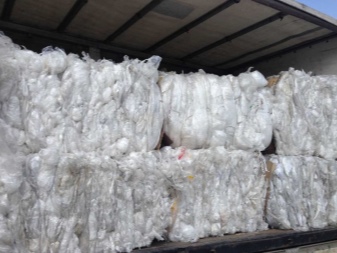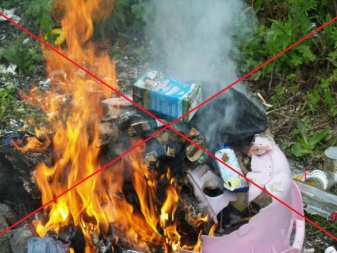How is the film processed?

Plastic wrap is used in many industries. The material appeared at the beginning of the 20th century - a telephone cable was made from it in the 30s, packaging in the 50s. Today, polyethylene has not become less in demand. In this article, we will look at how the collection, recycling and disposal of film takes place.


Where can I take the film?
Such a great popularity of plastic wrap has led to the fact that quite a lot of objects made of this material are collected in garbage cans every day.
Polyethylene foam is collected everywhere. These are not only film products, but also household and industrial containers.
Canisters, bottles, vials - all this is widely used by humans in everyday life. LDPE, PVC and HDPE products are thrown into waste containers every day. Of the total volume of garbage produced by humans, the share of such waste is 10%.


But not only in everyday life does a person use film. It is widely used in production as well. As an example, we can cite containers for chemicals, cable sheath, pipes and much more.
Among the waste is also a manufacturing defect, and its about 10% of manufactured products.
Why has polyethylene become so popular? First of all, it is inexpensive. In addition, such packaging is very convenient, easy to use, suitable for storing substances of various types.
But, the polyethylene film has one significant drawback - a long disintegration period. According to scientists, such a product completely decomposes in the natural environment only within 100, or even 200 years. This suggests that if you do not recycle such garbage, then humanity may soon drown in the mountains of plastic.

Most of the film ends up in our trash cans, then into the collection containers. As a result, it does not end up in specially prepared processing plants. As a result, environmental pollution. It is very important to separate the plastic from such a pile of debris and then clean it up.
The best option is considered to be preliminary sorting even at the moment when the waste tank is just filling. That is, a person is offered to immediately throw paper, glass and plastic into separate containers. This solution greatly simplifies the process of subsequent waste disposal.


It would be nice to install special accumulators for waste collection in cities. Unfortunately, this approach is widely used so far only in Europe - in our country only in some large cities.
If the penalty system worked for incorrect sorting of garbage, then the residents would not be lazy - and sort the garbage as it should be. And so, in containers, where there should be a polyethylene film, and other plastic. More often other, unsuitable waste is found.
You can hand over PET to enterprises that are specifically engaged in the processing of such waste.
And also on the territory of the country there are points where recyclable materials are collected. They accept not only plastic, but also metal and paper. Of course, you can't make a lot of money on this, but you can make your own contribution to protecting the environment, thereby saving not only nature, but also birds and animals, which also suffer from human waste.


Processing features
Recycling of polyethylene, which gives a second life to garbage, is a full cycle.
Sorting is done first. Garbage is sorted not only by size, but also by color and type. There are low and high pressure polyethylene - these are two different groups.
Sorting is carried out both on special equipment and manually. Today, special complexes have been created that make it possible to fully automate this process.


Garbage must be cleaned thoroughly before recycling. Cleaning means washing and subsequent drying.
This stage is absent only when the polyethylene waste is recycled clean. In another case, the following are used:
- centrifuges;
- friction sinks;
- Press.
Sometimes spinning is not enough, then thermal drying is used.
Used agglomerators allow you to grind waste to a homogeneous consistency. In this case, we are talking about a crusher or shredder.
The second unit easily handles polyethylene, which the crusher cannot handle. Sand, stones and other foreign fractions, including PET, are separated. In the latter, properties differ from LDPE and HDPE. This material is processed separately.



The process of separating foreign constituents takes place with the use of hydrocyclones and flotation baths.
After the material has been sorted, purified and crushed, it is sent to the agglomerator, then to the granulator and then to the plastic compactor.
As a result of this treatment, granules or so-called second-grade raw materials are obtained, which is perfect for creating new products.
Many today would like to learn how to recycle polyethylene film at home. Researchers have presented some options for how you can burn the material. Another thing is that it will not be possible to do this safely for oneself and the environment, since in the process a large number of harmful components are released into the atmosphere.
That's why it is better to leave the processing to specially created enterprises. They install expensive equipment on their territory and have the appropriate license.


Waste types
What is polyethylene? It is a product that is obtained from the polymerization of ethylene.
It is worth saying that this substance does not occur in nature, it is created artificially by man.
It can be obtained using the method of cracking some constituents of oil or dehydrogenation of ethyl alcohol and ethane.
For polymerization, it is necessary to break one of the bonds in the molecule and connect the monomer into a non-cyclic chain. The substance is influenced by pressure, temperature and catalyst. I am synthesizing several types of polyethylene.

LDPE
We are talking about high pressure polyethylene. It is a completely transparent material with good elasticity but low tensile strength.
If you look at a molecule, you will find that it has many branches. For this reason, it is impossible to create a crystalline structure, and the substance passes into a liquid state at a temperature of 103 ° C.
These are the so-called packaging materials in the form of films, bags.

HDPE
This is low pressure polyethylene. If we compare it with the previous version, then it is stronger, noticeably tougher. The threads have a structure, and there are not many branches.
Even at room temperature, the material is in a crystalline state. Melts at 125 ° C.
One of the advantages is resistance to many chemicals.
This polyethylene is used to make garbage bags, containers for solvents and oils, and pipes.

PSD
Medium pressure substance has the same benefits as HDPE. Bags, containers with thick walls and even a film are made from it.

LPVD
It stands for "linear high pressure polyethylene".
Quite soft material with good elasticity. One of the advantages is tear resistance. Can be painted.
They make a laminate, stretch film from it.

PEX
The material has recently appeared on the market.It is a product of additional processing of HDPE. It stands for cross-linked polyethylene.
To obtain, reagents and ionizing radiation are used. As a result, hydrogen atoms are split off from the polymer chain.
This is how a three-dimensional network is formed, which has a well-defined structure.
The material in question has a high melting point and can memory shape.
Insulation for cables, pipes are made of PEX-polyethylene.

What is made of waste?
Although polyethylene film is recyclable, it is an inexpensive, high quality material. It can be used to make new goods that are useful to humans.
Bottles and other containers are used to make packaging material or a similar product.
The resulting granules can be used as an additive to polyethylene. It, in turn, serves as a raw material for the production of large-volume containers or pipes, which can be used in communications where there is no pressure.

Drainage pipes, garden parquet flooring and terrace board are produced from used bottles and cans.
For the manufacture of molded products, agricultural film and the one that is obtained from household waste is ideal.
But cable winding, multilayer film can only be processed as an additive for the production of plastic products.
The method and equipment by which the polyethylene film is recycled depends on the type of material.


Disposal
Recycling does not mean completely destroying it. Recently, this word has been associated with recycling, when garbage has the opportunity to get a second life.
Burning plastic is strictly prohibited. For disposal, other, more environmentally friendly methods are used.
Pyrolysis is a method that saves the environment. It involves the degradation of plastic by exposure to high temperatures, but using an oxygen-free environment.

Despite the fact that there are quality methods for recycling plastic, tons of garbage still end up in landfills.
This is a rather promising area that will significantly improve the environmental situation in the country and in the world as a whole. As new technologies emerge, recycling becomes easier and cheaper. Polyethylene, which takes too long to decompose in the natural environment, can be quickly disposed of using methods developed by scientists.
How the film and plastic recycling line looks like, see below.













The comment was sent successfully.